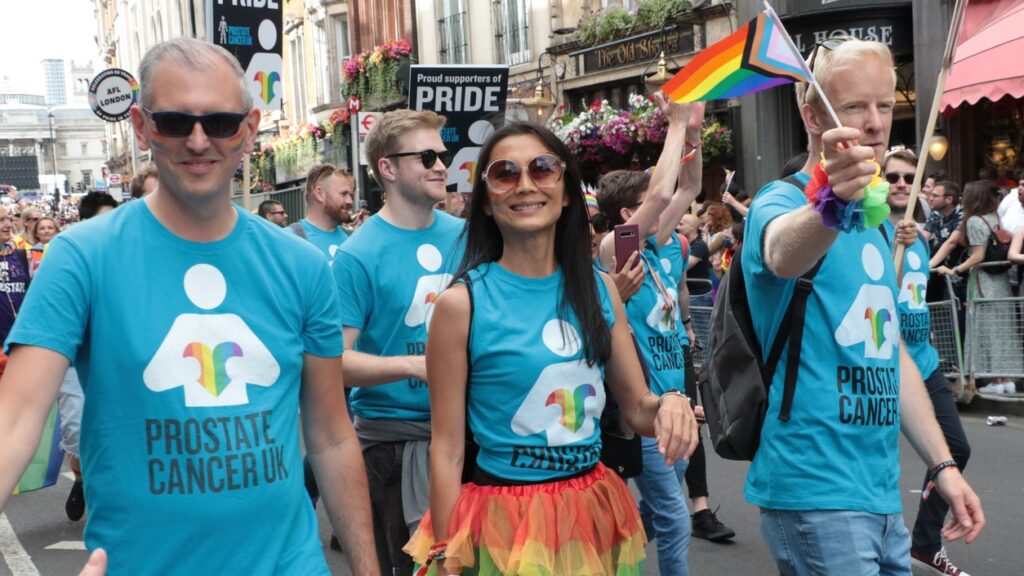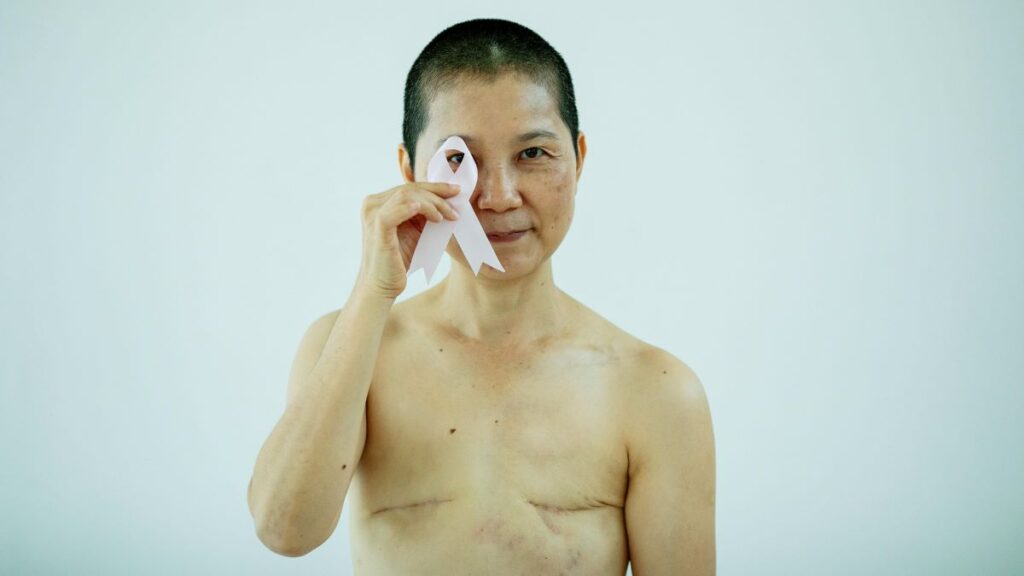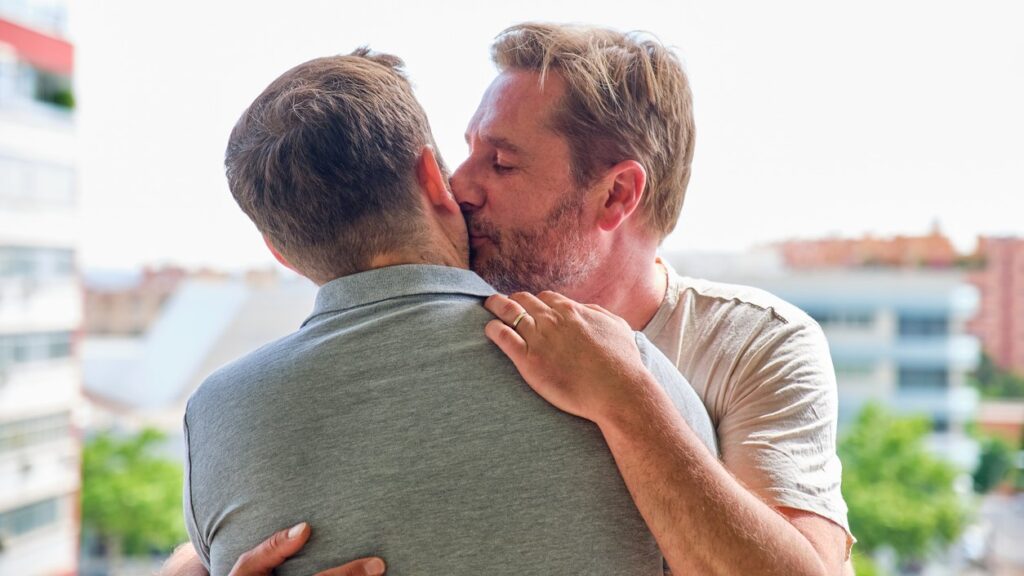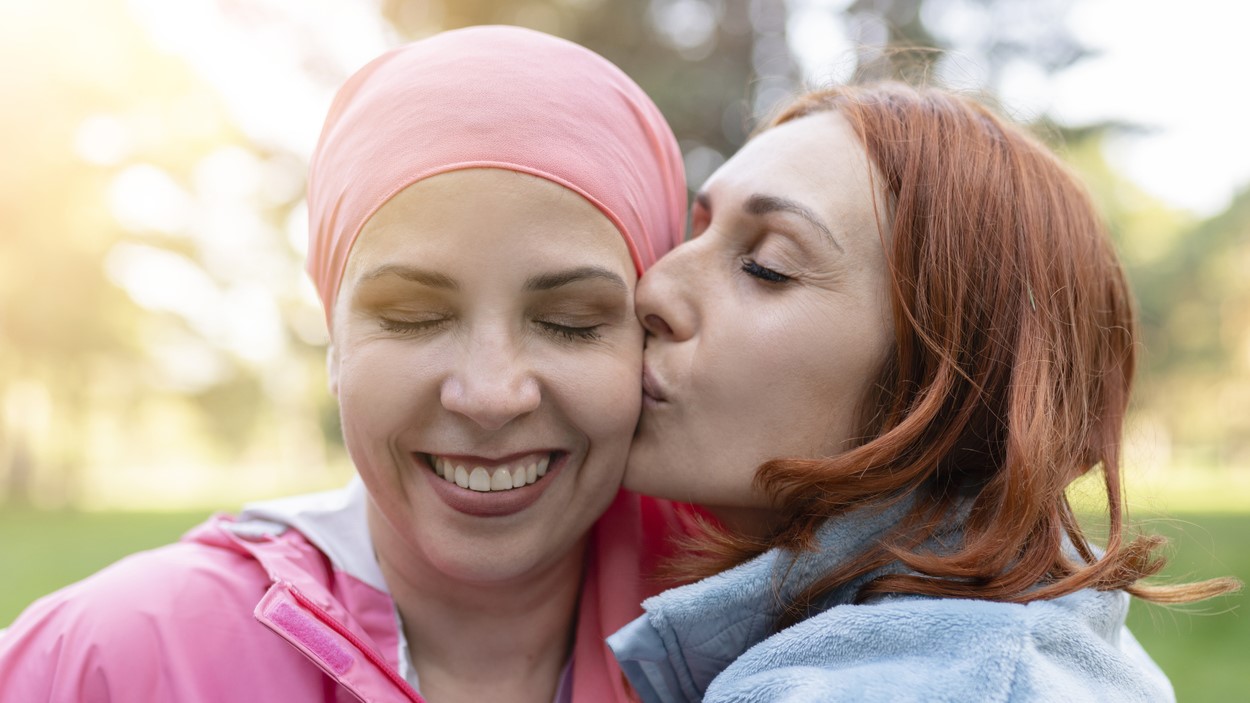“It’s a unique form of grief and I wish I had a space to talk to other queer people about it more,” shares a 38-year-old queer femme grappling with the after-effects of cancer treatment.
Feeling alienated from her body and others, she describes it as a “constant struggle to not feel broken and disconnected from the wonderful sex cultures I used to be such a big part of. It contributes to the sense of cultural/social isolation AND the sense of not belonging in my own body.”
These powerful statements from a study in The Journal of Sex Research reveal the unique challenges lesbian, gay, bisexual, transgender, queer, and intersex (LGBTQI) individuals face post-cancer.
Cancer doesn’t just affect physical health; it can also reshape one’s sense of self, intimacy, and identity within the LGBTQI community. By presenting broad trends and personal stories, this study offers a foundation for a more inclusive, supportive approach to cancer care for sexual minority groups.
Queering cancer research

The sexual wellbeing of LGBTQI people navigating cancer is often neglected.
A small but growing body of research suggests sexual changes may take a heavier toll on this population.
Still, participant samples are limited. To date, most have focused on older cisgender gay and bisexual men with prostate cancer and lesbian and bisexual women with breast cancer.
This study seeks to expand knowledge by examining the experiences of individuals with more diverse sexual and gender identities and tumor types.
Specifically, this study examined LGBTQI cancer patients’ sexual wellbeing after cancer and its links to social support, physical concerns, psychological distress, quality of life, and coping strategies. Using a mixed-methods approach, it carried out 430 surveys and 103 interviews.
Participants were eligible if they were diagnosed with cancer or had cancer-related medical interventions. They had to identify as LGBTQI and be at least 15 years old.
Most participants were cisgender (84%), with 50% identifying as women and 34% as men. Another 15% identified as trans or non-binary, while 7% were intersex. Since most intersex participants identified with one of these gender groups, they were not analyzed separately due to their small numbers.
Nearly two-thirds (74%) identified as lesbian or gay, followed by bisexual (19%), and queer (11%). The majority were White (85%), older adults (78%), living in Australia (72%).
Participant cancer types included brain (3%), breast (24%), cervical (3%), colorectal (5%), head/neck (4%), leukemia (5%), lymphoma (7%), ovarian (5%), prostate (16%), skin (7%), and uterine (6%).
Sexual wellbeing post-cancer
LGBTQI people experienced significant declines in sexual wellbeing after cancer diagnosis and treatment. These declines are tied to a lower quality of life, more physical issues, and less social support.
In fact, an analysis of six aspects of sexual wellbeing showed all worsened post-cancer. They included physical intimacy, sexual desire, enjoyment of sexual activity, ability to orgasm, communication about sexual issues, and sex life.
Cisgender men reported the largest decline, followed by cisgender women and trans individuals, though overall wellbeing didn’t differ by gender. Older age was also linked to greater declines for trans individuals.
Physical changes, identity, and sexual embodiment

Cancer-related physical changes, such as those affecting breasts, genitals, hormones, and bodily functions, significantly affected sexual embodiment and desire.
Not only did they often cause discomfort, loss of sex drive, and sexual dysfunction. They often led to feelings of self-consciousness, isolation from their communities, and a sense of disconnection from their LGBTQI identities. Unlike the general population, this group faced a unique challenge: post-cancer experiences often undermined their sense of being queer or trans.
After mastectomies, many cisgender women felt like “less of a woman” due to scars and breast loss. Yet a 53-year-old cisgender lesbian woman called the procedure “freeing,” adding she “never wanted the shape of a female body.”
Prostate cancer treatments resulted in erectile dysfunction, penis shrinkage, and loss of bladder control, leading some men to avoid sex and experience suicidal thoughts. Many felt alone and unseen in their identity struggles. “I really don’t think people understand the personal, symbolic and political implications for gay men when it comes to sex,” said a 50-year-old cisgender man with prostate cancer.
Cisgender women and trans participants reported more physical concerns. However, cisgender men experienced greater negative impacts on sexual wellbeing, particularly from incontinence and having a stoma—a surgically created opening in the body, typically the abdomen, that allows waste to exit.
The loss of facial hair also undermined the self-image of trans men and gay men who identified as “bears”, a group that embraces a rugged, masculine aesthetic.
Coping strategies
The most common coping methods were seeking information online (63%), followed by consulting healthcare professionals (50%), using sex aids (49%), changing sexual practices (43%), seeking counseling (40%), and joining support groups (33%).
Consulting healthcare professionals, changing sexual practices, and using sex aids were linked to better sexual wellbeing. Still, many found medical aids like vaginal dilators and treatments, such as pills and penile injections, unappealing or ineffective, saying they “felt too clinical” or “took away spontaneity.”
In contrast, support groups, information-seeking, and counseling were associated with lower sexual wellbeing. Notably, trans individuals in support groups reported better sexual wellbeing, while cisgender participants experienced lower wellbeing.
Cisgender men relied most on various coping strategies, while trans individuals were more likely to change sexual practices.
Some participants found seeing psychologists improved their sexual communication skills. Others struggled to find mental health support, especially for issues like erectile dysfunction.
Renegotiating sex and intimacy after cancer

Not everyone’s sexual wellbeing took a hit after cancer.
Embracing different sexual practices and exploration often led to positive experiences, with a 56-year-old queer woman saying she felt “sexier after cancer than before.” Some gay men also experienced sexual growth, sharing they were pushed to try new things and learn more about themselves.
Penetrative sex became difficult or impossible for many participants, in part due to vaginal atrophy and dryness as well as difficulty maintaining erections. As a result, some engaged in mutual masturbation and experimented with kinks. Others emphasized the importance of physical and emotional intimacy, such as cuddling and deep conversations, as a new normal. They described these forms of closeness as satisfying and fulfilling.
Communication about sexual issues was also vital. Couples who openly discussed their feelings found it easier to maintain physical intimacy, such as hugging and kissing, despite a decrease in sexual activity.
Many felt that strong relationships helped them cope with these changes without threatening their bond. Yet, participants without supportive partners reported significant negative impacts on their relationships and sexual lives. They felt their partners lacked patience and kindness regarding their physical changes, which added stress to their relationships.
Creating inclusive LGBT cancer care
Although cancer affected every aspect of sexual wellbeing, the personal stories of LGBTQI individuals offer valuable insights for better support.
For many, physical changes disrupted their sense of sexual and gender identity, leaving them feel disconnected from queer communities. Others, however, found empowerment and affirmation, discovering new and fulfilling ways to experience intimacy.
Improved sexual wellbeing after cancer was linked to higher social support, fewer physical issues, and better overall quality of life. Cisgender men experienced the greatest declines in sexual well-being and relied most heavily on coping strategies.
The authors call for LGBTQI cultural competency training in medical schools and continuing education for healthcare providers. In particular, they recommend adapting the PLISSIT and BETTER supportive care models to be more inclusive of the LGBTQI community. Already widely used to promote sexual wellbeing among cancer patients, they emphasize that healthcare providers should be the ones to initiate conversations about sex.
By prioritizing the sexual wellbeing of LGBTQI cancer patients, healthcare systems can reaffirm their dignity, agency, and right to a fulfilling intimate life. This support has the power to help patients stay connected to themselves, their partners, and their communities.



